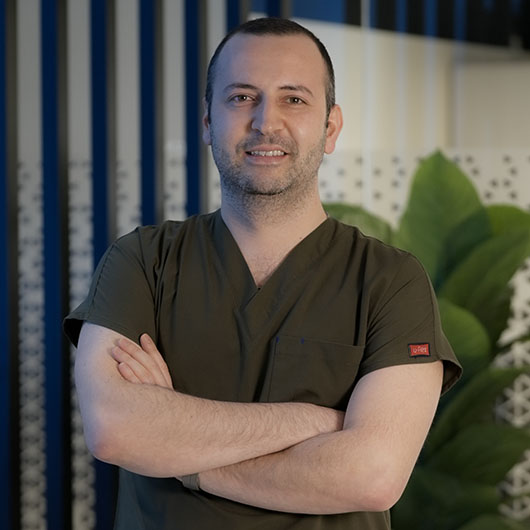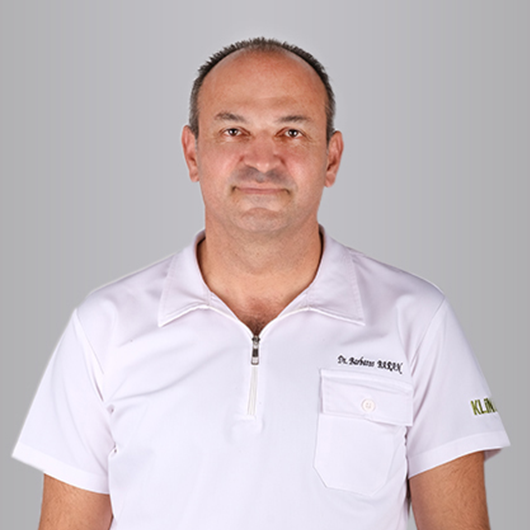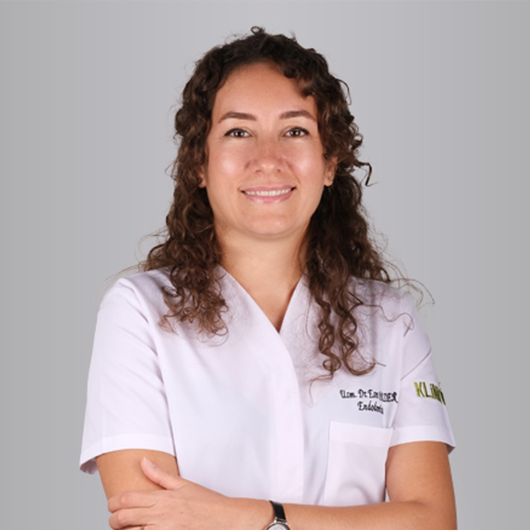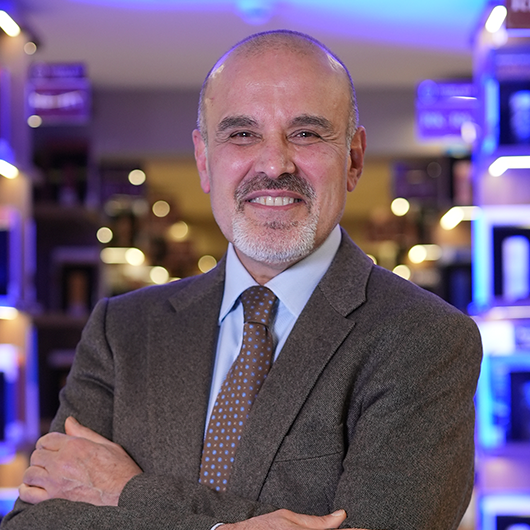Pedodontics
Pedodontics is a branch of dentistry that aims to protect both milk and adult teeth of children between the ages of 0-13 in a healthy way. Child teeth are an important factor affecting the oral health of children during the period from birth to adolescence. The Pedodontics deals with protecting and treating the children’s teeth as well as training them about dental care.
Pedodontics
- What Is Pedodontics?
- Which Issues Does Pedodontics Deal With?
- What Are Pedodontic Treatment Methods?
What Is Pedodontics?
Pedodontics is a branch of dentistry that aims to protect both milk and adult teeth of children between the ages of 0-13 in a healthy way. Child teeth are an important factor affecting the oral health of children during the period from birth to adolescence. The Pedodontics deals with protecting and treating the children’s teeth as well as training them about dental care. The pedodontists check up on the children’s teeth and gingiva on a regular basis and diagnose tooth decay, gingival diseases or other oral health problems. They also perform various dental procedures such as scaling, filling and tooth extraction.
Pedodontists create child-friendly environments to make children's dental experience more positive. They also practice special techniques to make children feel comfortable during treatments. They also train children and their parents on regular toothbrushing, proper eating habits and oral hygiene. Pedodontics is an important discipline to ensure that children have a healthy oral and dental structure. Regular dental checkups and dental care that start at an early age help children have a healthy oral structure in adulthood.
Which Issues Does Pedodontics Deal With?
- Tooth Decay: Tooth decay is the most common oral health problem among children. The pedodontists diagnose and treat children’s tooth decay as well as take risk-reducing measures against decays.
- Dental Traumas: The children may be exposed to dental traumas because of falling or sports activities. The pedodontists treat traumatic injuries such as dental fractures, fissures or tooth loss.
- Tooth Development Problems: The pedodontists follow children’s dental development and perform interventions to ensure proper tooth growth. This can include various treatment methods to support proper development of the jaw structure and healthy alignment of the teeth.
- Teeth Grinding (Bruxism): Some children can unconsciously grind or clench their teeth during sleep. This condition can cause some problems such as erosion of the teeth, sore jaw or headache. The pedodontists’ role here is to diagnose the bruxism and recommend appropriate treatment methods.
- Oral Hygiene Problems: It is important for children to learn how to brush their teeth properly and pay attention to oral hygiene. The pedodontists teach proper toothbrushing and flossing techniques and help children form regular dental cleaning habit.
- Oral Malodor (Halitosis): Oral malodor in children can develop depending on several factors. The pedodontists determine the causes of the malodor and recommend appropriate treatment plans.
- Milk Teeth Problems: Milk teeth are replaced by adult teeth, which effect children’s nutrition, speech and proper alignment of the teeth. The pedodontists allow the milk teeth to grow in a healthy manner and be protected against decays. They also perform the particular treatment methods in the event of decay or other problems in the milk teeth.
- Orthodontic Problems: Some children may face orthodontic problems as a result of improper development of the jaw structure and teeth. Crowded or impacted teeth as well as jaw misalignments are among these problems. The pedodontists evaluate children’s orthodontic needs and recommended orthodontic treatment, if needed.
- Children with Special Needs: The pedodontists also concern with oral and dental health of children with special needs. The children with autism spectrum disorder, Down's syndrome or motor skill problems are the ones with special needs. The pedodontists have the required competencies to provide appropriate and customized oral care and treatment for these children.
What Are Pedodontic Treatment Methods?
- Dental Cleaning and Fluoride Use: The pedodontists regularly clean children’s teeth and eliminate scale or dental plaque accumulation. They also apply fluoride to strengthen the enamel layer of the teeth. The fluoride protects the teeth against decays and keeps the enamel healthy by remineralizing.
- Filling Treatment: In the event of tooth decay, the pedodontists clean the decayed area and fill it using filling materials. This process stops progression of the decay and allows the teeth to be intact. The pedodontists often use aesthetic and child-friendly filling materials for the children.
- Pulp Treatment: If decay has reached the pulp layer of the tooth (viable tissue inside the tooth), the pedodontists perform pulp treatment. This treatment clears the infection, protects the pulp and restores the tooth with a filling or pulp coating.
- Tooth Extraction: When decayed, damaged or improperly located teeth need to be extracted, the pedodontists perform tooth extraction. While performing tooth extraction, local anesthesia or sedation can be used to make the children feel comfortable.
- Space Maintainers: In case of tooth loss at an early age, the pedodontists use space maintainers to sustain the correct position of the teeth. The space maintainers ensure appropriate tooth growth and prevent other teeth from shifting to the space.
- Pediatric Prostheses: The pedodontists can use pediatric prostheses in the event of tooth loss or tooth development problems in children. These prostheses replace the missing teeth and restore the children's natural appearance and chewing function.
- Fissure-Sealant Applications: Fissure sealants can be applied to cover the indentations and protrusions (fissures) on the chewing surfaces of children's teeth. This procedure prevents decay and protects the children’s teeth.
- Treatments For Dental Traumas: When trauma occurs in the mouth or teeth of the children, the pedodontists treat the dental damage caused by the injury. These treatments may include procedures such as restoration of fractured teeth, treatment of gum sores or replacement of teeth.
- Orthodontic Treatment: When the jaw structure or teeth do not develop properly, the pedodontists can perform orthodontic treatment. These include braces, aligners or teeth expanders. These treatments ensure the proper alignment of the children's teeth and create an aesthetic and functional smile.
- Decay Prevention: The pedodontists teach children preventive measures against tooth decay. This includes regular toothbrushing, flossing, appropriate eating habits and fluoride application. They also provide training with children about paying attention to oral hygiene and avoiding harmful habits.
- Personalized Treatments for Children with Special Needs: The pedodontists offer personalized treatments for children with special needs. The children with special needs may be the ones with autism spectrum disorder, Down's syndrome or motor skill problems. The pedodontists draw treatment plans tailored to the needs and characteristics of the children and provide them with a comfortable dental experience.
- Mouth Guards/Protective Apparatuses: Mouth guards are generally used to prevent dental and oral injuries during sports or other activities. The pedodontists allow children to wear mouth guards properly and prevent tooth and gum injuries.
- Prevention of Bad Habits: Harmful oral habits such as thumbsucking and nail biting can adversely affect the children's oral and dental health. The pedodontists provide counseling and treatment with children and their parents to prevent these habits. In this way, they help the children form healthy oral habits.
Doctors
List of doctors under the HOP of the corporation












